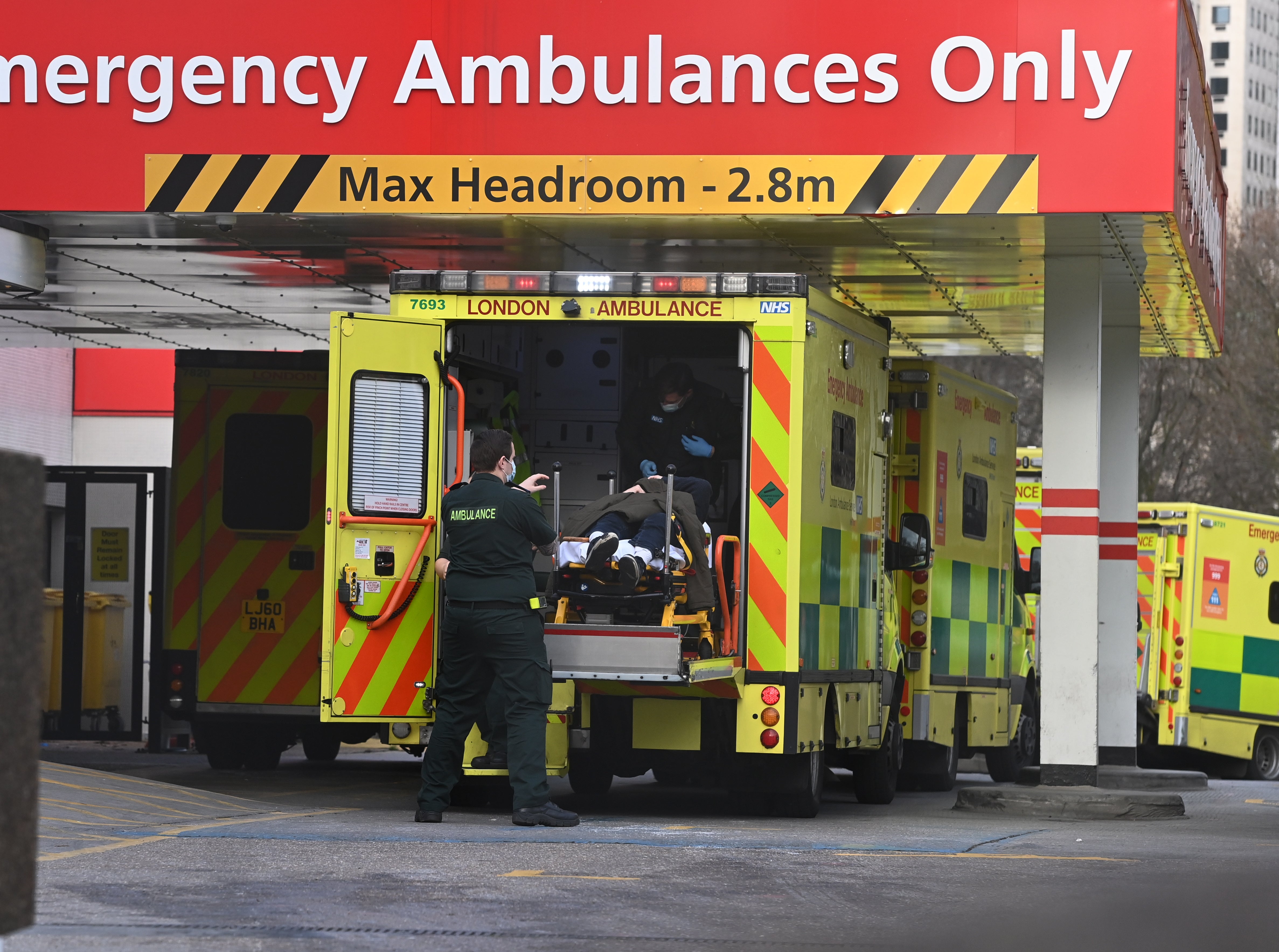Covid hospital admissions rising with most patients younger people, says NHS leader
In one hospital, 70% of admissions are among under-45s

The number of people being admitted to hospital with Covid-19 is rising in some regions but "few, if any" are from care homes, according to an NHS leader.
Younger people are making up most of coronavirus hospital admissions, with 70 per cent of admissions in one hospital consisting of under-45s, NHS Providers chief executive Chris Hopson said.
Although the number of hospital admissions is "ticking up" in areas most affected by the Indian Covid variant, the rise is small compared with the levels seen earlier in the year.
Speaking to Times Radio, Mr Hopson said most hospitalisations were among younger people and those who have been offered the vaccine but have yet to take up the offer.
A number are among those who have only had their first dose of a Covid-19 vaccine, while “a very small number” are fully vaccinated with both doses.
Compared to January and February, when patients admitted were mostly older and iller, the younger age profile meant there is less pressure on critical care units – which were almost overwhelmed during earlier waves of the pandemic.
"Talking to a group of chief executives over the last few days in the areas that are most affected by the variant that originated in India, what we're hearing is that hospitalisations are increasing, but they're not increasing precipitously,” Hopson said.
"One chief executive I spoke to said they had 20 hospitalisations last week, they've got 40 hospitalisations this week, they're expecting 60 hospitalisations next week, but this was in a hospital that in January and February was trying to deal with 150 Covid-19 patients.
"So that gives you that sense of the fact that the hospitalisation rate is ticking up, but it's certainly not at the levels that we saw in January and February when, as we know, the NHS in certain places was under real pressure."
He added: "When you talk to the chief executives, what they say is that the balance of where Covid-19 patients are going is very different this time - in January and February, because you had much older, iller patients, you had much greater pressure on critical care because those patients were very seriously ill.
"What the chief executives are saying to us now is that because the age profile of those who are being hospitalised is so different - so again in the hospital I was speaking to yesterday, around 70 per cent of the hospitalisations are (among people) under 45 - what they're finding is that a much higher proportion of patients are actually being dealt with, and are being treated, in general and acute beds.
"So, as well as smaller numbers compared to the January and February, there's actually lower levels of acuity and there's less pressure on critical care."
Mr Hopson’s comments came as the NHS said people aged 30 and over in England can book their coronavirus vaccinations from today.
Around one million people aged 30 and 31 will get a text message in the coming days inviting them for vaccine as Britain attempts to keep ahead of the B.1.617.2 variant.
Join our commenting forum
Join thought-provoking conversations, follow other Independent readers and see their replies
Comments
Bookmark popover
Removed from bookmarks